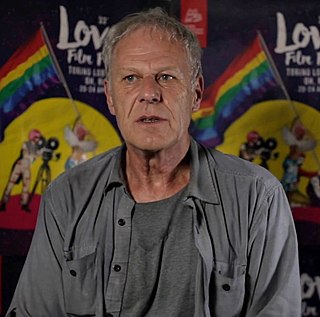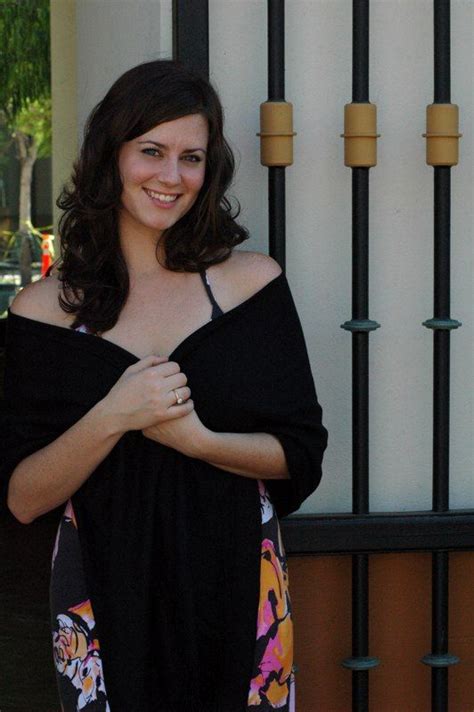A Quote by Miranda July
You've got the people you know, which are problematic. Always. They're rich but they're also real people living their lives alongside you. Then you've got the people that you make-up completely, who are often missing a dimension if they don't have some reference to real people. So strangers exist in this in-between space, where in not knowing them, you are creating a fiction for them, even in passing, but at the same time, there they are, with their actual bodies and their actual clothes. It's totally enticing.
Quote Topics
Related Quotes
Here in Europe some of the challenges have to do with structures that are so complicated. You've got Brussels, and you've got parliament, you've got councils and then you've got national governments. So people sometimes don't feel as if they know who's making decisions, and the more that we can bring people in and engage them, the better. Some of it is also cultural and social, people's sense of identity.
I live in the same house I’ve lived in for 25 years. I haven’t gone off and bought mansions, you know, even though my subject is living… living in a mansion wouldn’t do for my readers. I have to keep my credibility alive with my readers, so we’re in the same place. I just make that place nicer and nicer. And… and that’s a secret. And people don’t know that. People think, oh, she lives in this fabulous place, it’s the same old place. It started out like a farm, it got to be a farmette, then it got to be an estatelet. I built a wall, it helped a lot. But it’s the same place, the same grounded nature.
I'm a big believer in you make your argument to everybody, and you do it in a way that is real and very candid. Even if people don't agree with you, they appreciate that you're telling them what you believe and they know that you care about them. That's I think a very important part of it that sometimes gets missed, is that people will be OK with you saying something they're not totally on-board with as long as they know that you believe it because you want to help them. That means you've got to care about everybody.
I've never written a fiction before about real people. . . . I read everything that I could find by people who met them and tried to get some impression of them, but as always when you write fiction, even if you have completely fictitious characters, you start by thinking of what is plausible, what would they say, what would they be likely to do, what would they be likely to think. At some point, if it is every going to come to life, the characters seem to take over and start speaking themselves, and it happened with [COPENHAGEN].
I had said that Le Guin's worlds were real because her people were so real, and he said yes, but the people were so real because they were the people the worlds would have produced. If you put Ged to grow up on Anarres or Shevek in Earthsea, they would be the same people, the backgrounds made the people, which of course you see all the time in mainstream fiction, but it's rare in SF.
Investors are trying to work out some risk premiere that have some correspondence with actual risks. But they don't, they're not, they can't go very far that way, because the actual correspondence isn't really there in a lot of cases. So once people stop believing in these stories, and then the crash can come very, very quickly. They believe that house prices are correctly priced for some time and then suddenly they realized there's no real basis for that. But what is the correct price? We don't know that either. It's just that everything swings.
Travel is the realm of the impossible adventures, the quick fix, the ship passing in the night. It entitles you to meet interesting people, whom you would never meet, even if you laid traps or advertised for them. Not only do you met them, but you also unmeet them, all in the space of, it often seems, a mere compacted evening. As there is so little time, bodies in motion drop their guard and immediately get on with their stories. Then the proverbial ships part, each to its destination, never again to brush each other's wake.
It's all about self-discipline. Like, self-obsession is connected completely with self-loathing, and it's the same with, if you've got a weight problem. It's all about... finding some worth in yourself, knowing that you've got the discipline to do it, and knowing that other people maybe can't do it. And it's also, I think, really connected to the fact that you almost feel, like, silent, you have no voice, you're mute, there's just no, you've got no option. Even if you could express yourself nobody would listen anyway. Things that go on inside you, there's no other way to get rid of them.
I think maybe people see bands and musicians as some sort of superhero unrealistic sport that happens in another dimension where it's not real people and not real emotions. So, I grew up
listening to Beatles records on my floor. That's how I learned how to play guitar. If it weren't for them, I wouldn't be a musician.
I think maybe people see bands and musicians as some sort of superhero unrealistic sport that happens in another dimension where it's not real people and not real emotions. So, I grew up listening to Beatles records on my floor. That's how I learned how to play guitar. If it weren't for them, I wouldn't be a musician.
I have friends that I have made through Twitter or things like that, but they're all verified as real people - I've either seen them perform, or we're mutual fans of each other, something like that. I don't have any authentic. I have a lot of good people in my actual life, but I will say that it's a strange time that we live in - it's easy to make friends and to make connections through social media, and if you're a good-hearted person, sometimes you can just assume people are who they say they are, and that isn't always the case.
One of the things I tell my students is that if you want to understand what's been going on and also what needs to be done, you've got to get out of the blame game. Some people on the left want to blame the rich and corporations. Some people on the right want to blame the poor and government. Either of those frames of reference gets you nowhere and they aren't even truthful. You've got to understand the dynamic itself.





































